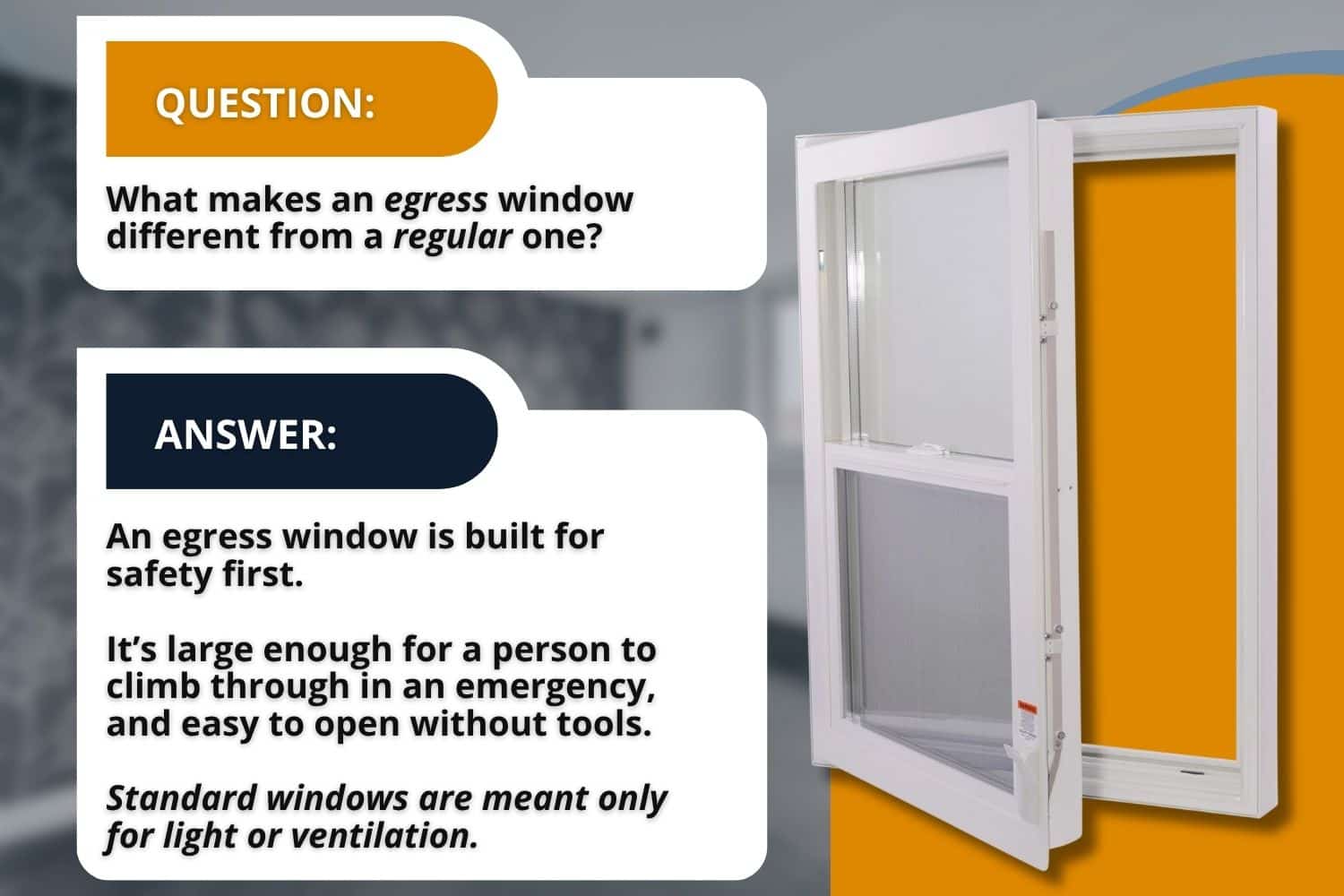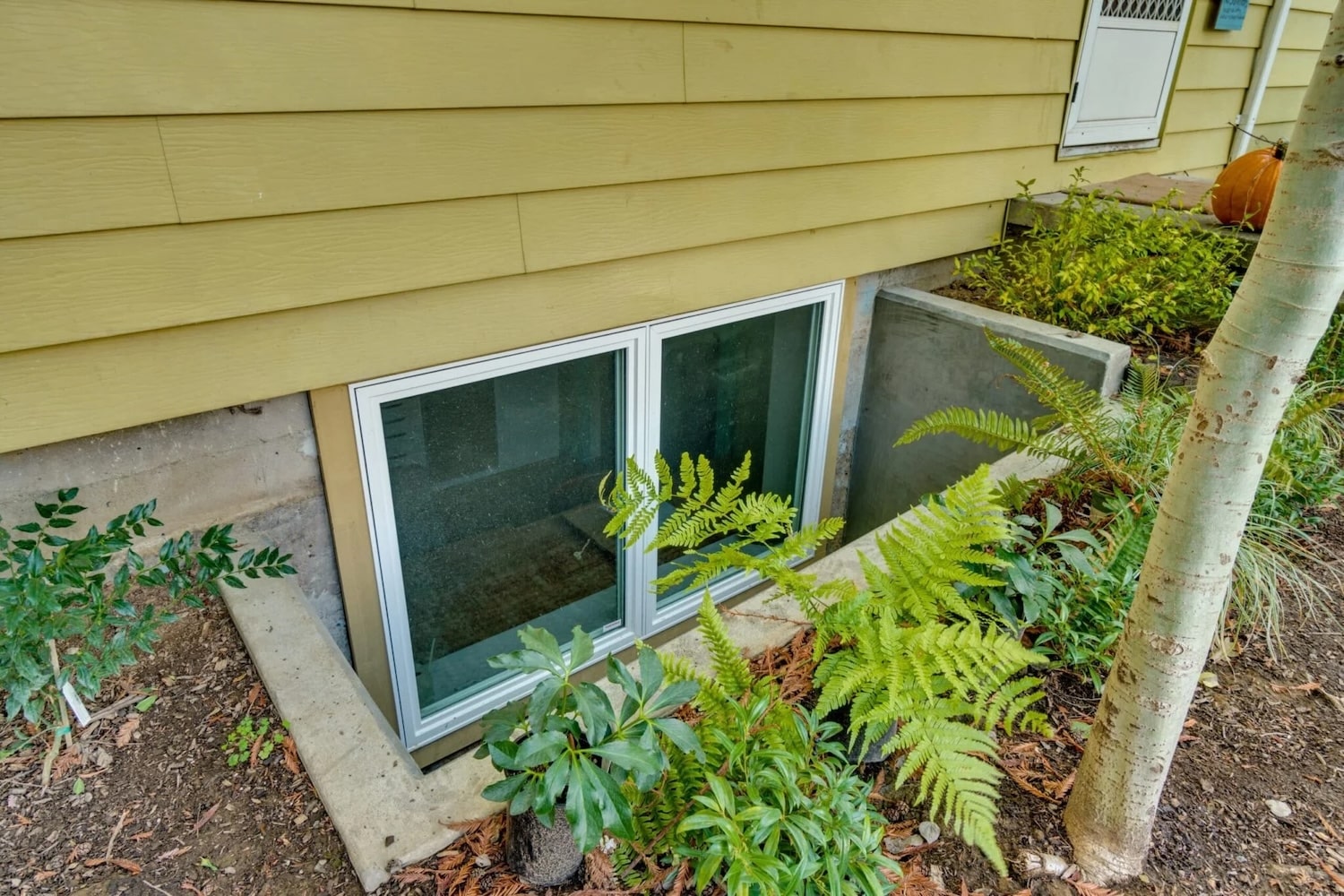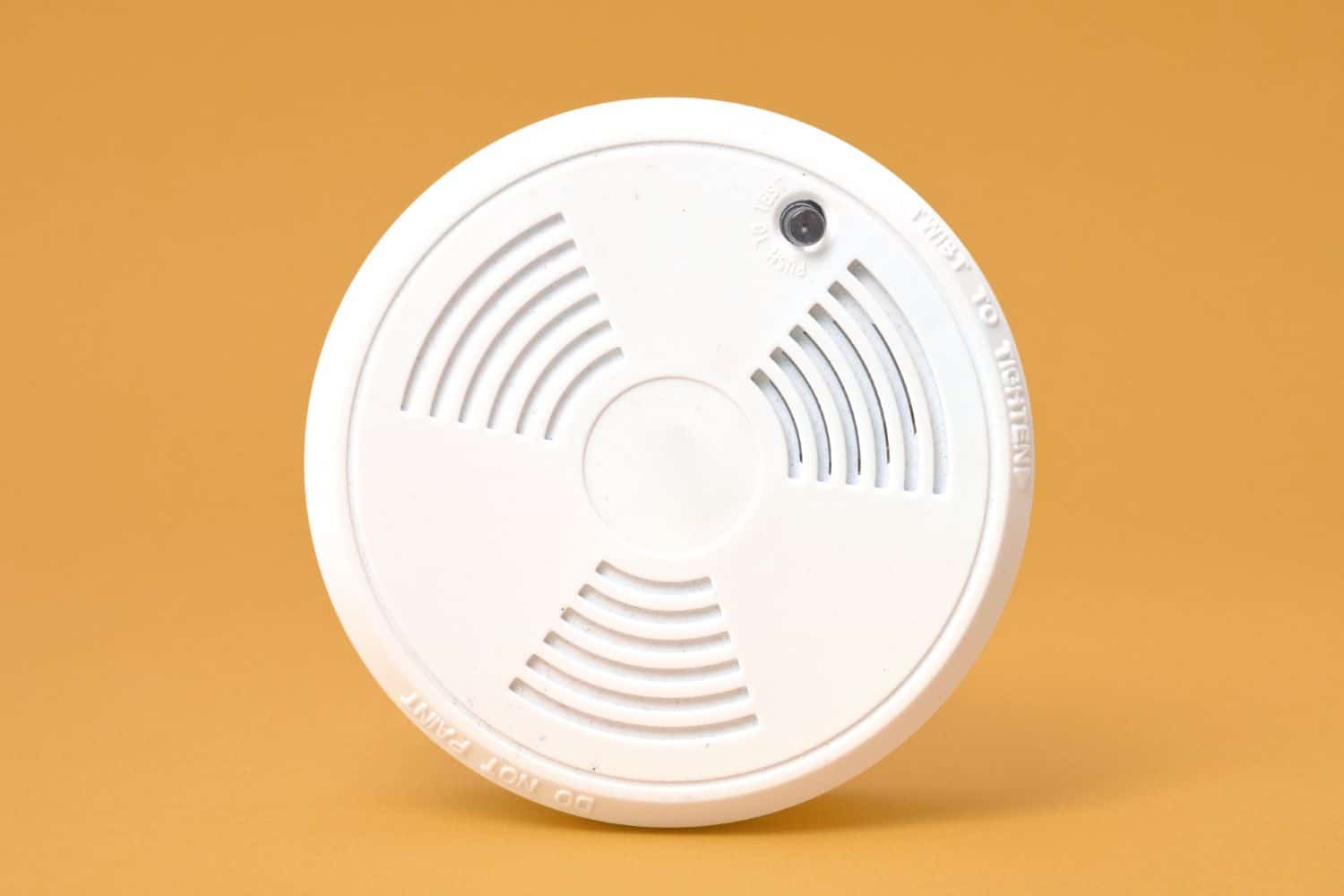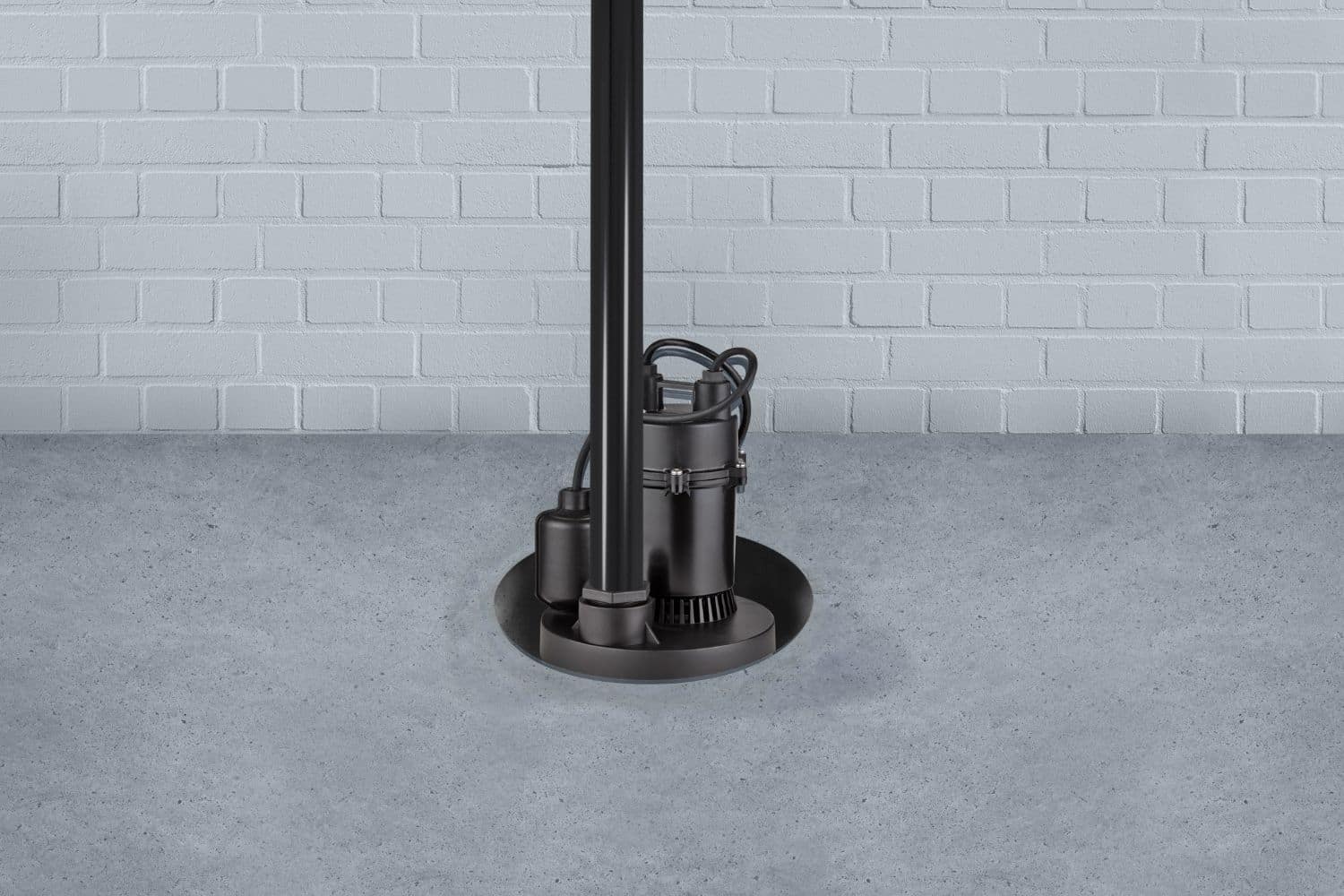Egress windows are one of those home features you rarely think about until they become important. Whether you’re finishing a basement or planning a remodel, understanding egress window requirements can make the difference between a safe home and a major code violation.
In Illinois, egress windows are required for all habitable spaces like bedrooms and basements. These windows serve as emergency exits and provide natural light and ventilation where standard windows can’t.
This guide breaks down what egress windows are, why they matter, and how to make sure your home meets current safety standards before your next inspection.
What Is an Egress Window?
An egress window is designed to allow people to exit a room quickly in case of an emergency, such as a fire, or to give firefighters an entry point. The word “egress” literally means “a way out.”
While every home has windows, not all of them qualify as egress windows. To meet building codes, these windows must be large enough for a person to climb through and must open easily without tools or keys.
According to the International Residential Code (IRC), any sleeping area, finished basement, or habitable room below ground must include at least one egress window.
In older Naperville homes built before 1980, basement windows were often smaller and designed for ventilation only. These do not meet current egress standards and may need to be enlarged if you plan to finish or repurpose the space.
Why Do Egress Windows Matter for Home Safety?
Egress windows aren’t just about passing inspection; they are essential for safety. In a fire or smoke emergency, seconds count. A window that’s too small or stuck shut can trap occupants inside.
The U.S. Fire Administration (USFA) reports that more than 3,000 Americans are lost each year in house fires, many due to blocked or inaccessible escape routes. Egress windows provide an alternative exit when hallways or stairways become unsafe.
Beyond safety, egress windows also:
- Improve air circulation and reduce humidity in basements
- Add natural light to lower levels, making them more livable
- Increase property value and resale compliance
For Naperville homeowners, these benefits are especially important since many homes feature finished basements that double as guest rooms, playrooms, or home offices. Without proper egress, those spaces may not meet local code or qualify as legal bedrooms.

Local Egress Window Requirements
Each state adopts its own version of the IRC, but most follow similar guidelines. In Naperville and surrounding Illinois areas, these are the key requirements for egress windows based on the 2021 IRC and the Illinois Residential Code:
Minimum Size Requirements
- Opening width: At least 20 inches
- Opening height: At least 24 inches
- Net clear opening area: At least 5.7 square feet (5.0 for ground-floor windows)
- Maximum sill height: No more than 44 inches from the floor
These dimensions ensure that an adult can fit through the window without obstruction during an emergency.
For Basement Egress Windows
If the window opens into a window well, the well must:
- Have a minimum area of 9 square feet (at least 36 inches in both width and length)
- Include a permanent ladder or steps if the depth exceeds 44 inches
- Remain free of debris, snow, or landscaping obstructions
Naperville’s building department often references these same IRC measurements during inspection. It’s also common for inspectors to verify that the well has adequate drainage to handle heavy rain and snowmelt.
Egress Windows in Basement Bedrooms
Basement bedrooms have the strictest egress requirements because they are often below ground and furthest from a door exit. Even if your basement has a full-size window, it might not meet egress standards unless it opens fully and meets the required dimensions.
Key points for all basement egress windows:
- They must open directly to the outside, not into a garage or enclosed patio.
- Window wells must provide enough space for a person to stand and climb out.
- The latch or handle must be reachable without special tools.
- Security bars or grates must be removable from the inside without keys or effort.
Homes in older Naperville neighborhoods, like West Highlands or Cress Creek, often need egress upgrades when finished basements are converted into living spaces. An inspection can confirm whether your existing windows qualify or need replacing.
Common Mistakes Homeowners Make
Installing an egress window may seem straightforward, but many DIY or low-cost projects fail to meet code. These are some of the most common issues inspectors find:
1. Window Installed Too High: If the bottom of the opening is more than 44 inches from the floor, it’s considered unsafe. Installers can lower the sill height or add a step platform to make it compliant.
2. Window Well Too Small: A well that’s too narrow or shallow may prevent escape. The space must allow room for a person to stand and move comfortably.
3. Grates or Covers That Don’t Release Easily: Security grates are fine as long as they can be removed from the inside without tools. Locked or bolted covers violate code and create serious hazards.
4. Obstructions Outside the Window: Landscaping, decks, or retaining walls can block access to the well. Keep these areas clear to ensure quick escape during emergencies.
5. Poor Drainage Around Window Wells: Improper drainage is one of the biggest problems in Illinois basements. A clogged or missing drain can lead to flooding and water damage, especially during Naperville’s heavy spring rains.
Benefits of Adding or Upgrading an Egress Window
Installing or updating an egress window is one of the most practical upgrades for safety and value.
Main benefits:
- Safety Compliance: Provides a legal escape route and reassurance during emergencies.
- Natural Light: Brightens dark basements and makes them feel more livable.
- Better Ventilation: Helps reduce humidity and prevent mold growth.
- Increased Home Value: Finished basements with egress windows appraise higher.
- Lower Insurance Risk: Some insurers offer lower rates for safety-compliant homes.
According to industry reports, finished basements with proper egress windows can recoup around 70% of their cost at resale in the Midwest.

How Inspectors Evaluate Egress Windows
During a home inspection, professionals check that egress windows meet both local and national standards.
At Prospective Home Inspections, we look for:
- Accurate measurements for width, height, and clear opening size
- Proper sill height (no higher than 44 inches)
- Window wells with safe access and drainage
- Ease of operation without tools or effort
- Evidence of water intrusion or frame deterioration
They also confirm the window complies with Naperville’s most recent building requirements. For older homes, inspectors may recommend updates to match the latest code revisions or improve accessibility.
When You Should Have Egress Windows Inspected
Even if your home already has egress windows, periodic inspections are essential to ensure they still function properly.
You should schedule a professional inspection if:
- You notice moisture or leaks near the basement windows
- The window is difficult to open or close
- There’s visible rust, corrosion, or frame decay
- You’ve added new flooring that affects the sill height
- You’re converting a basement into a new living space
Routine inspections are especially helpful after major storms or freeze-thaw cycles that shift soil and affect window well drainage.
Egress Window Maintenance Tips
Maintaining an egress window doesn’t require much time, but consistency makes a big difference in safety and longevity.
- Test the opening mechanism twice a year
- Clear window wells of leaves, snow, and dirt
- Check that the drain functions properly after rain
- Inspect for cracks or soil shifting near the well walls
- Reseal caulking if gaps or leaks appear around the frame
Keeping these areas in good condition helps you stay code compliant and reduces long-term maintenance costs.
Other Related Questions Homeowners Ask
Can a home inspection include egress windows?
Yes. Inspectors check that windows open properly, meet size standards, and provide a safe exit in case of emergency.
Do I need a basement inspection before remodeling?
It helps catch drainage, moisture, or foundation issues that could affect window wells or finished walls later.
Why is there water near my basement window?
Clogged drains or poor grading often cause it. A professional can check whether the issue comes from the well, guttering, or foundation.
Does attic ventilation impact basement moisture?
Yes. Poor airflow upstairs can trap humidity throughout the house, leading to dampness near lower-level windows.
When to Call a Professional
If you’re unsure whether your home meets egress window requirements, it’s best to schedule an inspection. Prospective Home Inspections offers detailed home and basement evaluations across Naperville and surrounding Illinois communities.
Their inspectors assess window safety, drainage, and code compliance, giving homeowners a clear plan for improvements before listing or remodeling.
They also provide recommendations for installation, replacement, and preventative maintenance to ensure your home stays both safe and market-ready.
Conclusion
Egress windows play a crucial role in both safety and compliance. Understanding the requirements and keeping them in good condition can prevent future problems and ensure your family always has a reliable escape route in an emergency.
If you’re renovating a basement, adding a bedroom, or preparing your home for sale, contact Prospective Home Inspections for a professional evaluation. Their experienced team will verify that your egress windows meet Illinois safety standards and help you make informed decisions for lasting protection and value.






